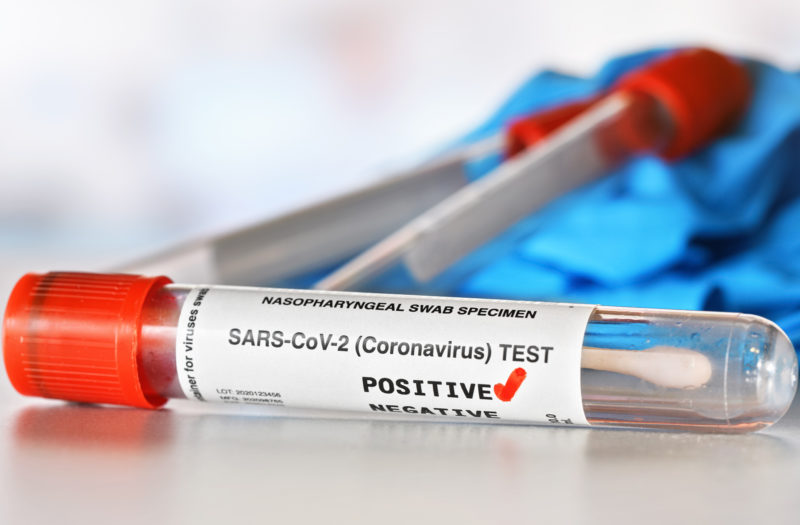Learn more about our FREE COVID-19 Patient Support Program for chronic illness patients and their loved ones.
When the COVID-19 vaccines were first being authorized, experts emphasized that they would not be 100 percent effective against the virus, meaning fully vaccinated people could still become infected with COVID-19. Fortunately, breakthrough COVID infections appear to be rare and mild — at least among the general population. Whether those who take immunosuppressant drugs for inflammatory or autoimmune diseases get adequate protection from the vaccine, however, hasn’t been as clear.
A new pre-print study (meaning it hasn’t been peer-reviewed yet) now sheds some light on breakthrough infections in people with inflammatory or autoimmune rheumatic conditions who take medications that affect immune system function.
In summary: Breakthrough infections are still relatively rare among this group, though not as rare as they are among the general population. But more concerning is that when breakthrough infections do occur in immunocompromised patients, there is a greater risk of severe outcomes, the research found.
The study, which was posted on medRxiv, assessed COVID-19 cases in rheumatic disease patients at Mass General Brigham, a hospital system in Boston, that occurred between December 11, 2020 (when the first COVID-19 vaccine was authorized in the U.S.) and July 30, 2021.
Participants had a variety of autoimmune rheumatic diseases such as rheumatoid arthritis, inflammatory myositis, and lupus. The most common immunosuppressant treatments taken among patients were rituximab, glucocorticoids, mycophenolate mofetil, mycophenolic acid, and methotrexate.
During the study period, 340 rheumatic disease patients tested positive for COVID-19. Of these, 40 received a COVID-19 vaccine prior to their earliest positive test, 16 (4.7 percent) of whom were classified as breakthrough infections. (For the others, it might not have been a full two weeks after their second of the Moderna or Pfizer vaccine or first dose of the Johnson & Johnson vaccine. The definition of a breakthrough infection is that it must occur two weeks or more after you’re fully vaccinated.)
Of the 16 patients who were classified as having a breakthrough infection:
- 7 received the Pfizer vaccine
- 5 received the Moderna vaccine
- 4 received the Janssen/Johnson & Johnson vaccine
Although most people with breakthrough infections did not have complications, six were hospitalized and two died. Both of the patients who died had interstitial lung disease, a complication of several rheumatic conditions that can be very dangerous even without the presence of a viral infection like COVID-19. These individuals were also taking rituximab; the study found that most breakthrough cases happened to people who were on this drug compared to other medications. This suggests a higher-than-average risk of serious outcomes for people with autoimmune diseases who are being treated with certain immunosuppressant drugs.
“In contrast to outcomes of breakthrough infections in the general population reported to the United States Centers for Disease Control and Prevention, we observed a larger proportion of patients who required hospitalization (40 percent vs. 10 percent) or died (13 percent vs. 2 percent),” the authors wrote.
“Additional studies are urgently needed to estimate the risk of breakthrough infections among [systemic autoimmune rheumatic disease] patients and to evaluate the efficacy of booster vaccines and other strategies for DMARD users with poor immunologic response to COVID-19 vaccination,” the researchers concluded.
It’s important to keep in mind that the number of patients in this study was very small, which can make it challenging to generalize the findings to other people who have inflammatory or autoimmune conditions. It’s a good idea to speak to your rheumatologist or other health care provider about your medical conditions, medications, and comorbidities to see if you should get a COVID-19 vaccine booster when it becomes available to you.
Get Free Coronavirus Support for Chronic Illness Patients
Join the Global Healthy Living Foundation’s free COVID-19 Support Program for chronic illness patients and their families. We will be providing updated information, community support, and other resources tailored specifically to your health and safety.
Cook C, et al. Clinical characteristics and outcomes of COVID-19 breakthrough infections among vaccinated patients with systemic autoimmune rheumatic diseases. medRxiv. August 5, 2021. doi: https://doi.org/10.1101/2021.08.04.21261618.






